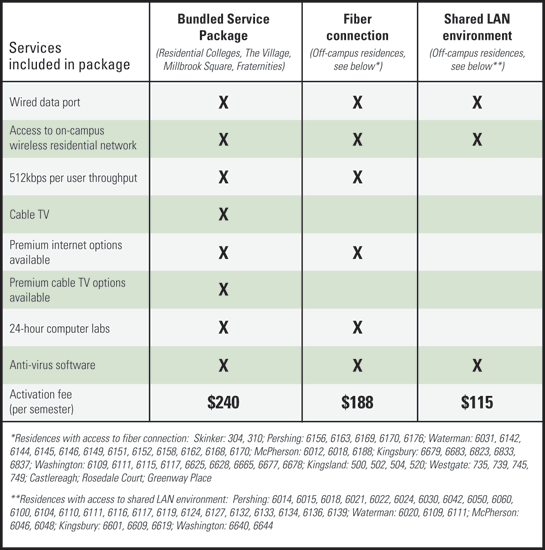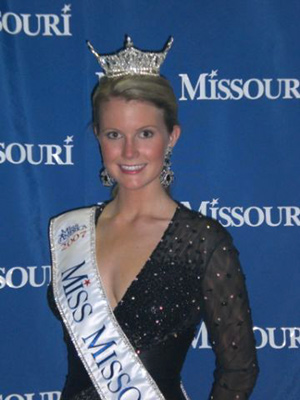Executive Vice Chancellor for Administration John Klein is leaving the University to become the ninth president of Randolph College in Lynchburg, Va.
Klein, whose tenure at the 700-student school will begin in August, was chosen from a field of more than 100 applicants. The college’s Presidential Search Committee, a group of students, faculty, alumni, administrators, staff members and trustees in charge of evaluating the applicants, recommended him unanimously to the Board of Trustees.
According to Brenda Edson, strategic communications manager at Randolph, the committee chose him for his broad range of credentials.
“Everyone I talked to on the Presidential Search Committee said that all of his credentials, all of his experiences, make him the right person for the college at this moment. They cited his leadership skills, his business background and his global background,” said Edson.
Klein’s appointment accompanies a new strategic initiative plan at the financially troubled Randolph College, which, according to the Associated Press, has recently had to eliminate several faculty positions and dip into its $140 million endowment to offer scholarships to attract prospective students.
As part of the plan, which is aimed at increasing the global perspectives of the school community, Randolph, historically a women’s college, will become a coeducational institution, admitting male students starting this fall. To go along with that change, the school, previously known as Randolph-Macon Woman’s College, changed its name to Randolph College on July 1.
“This is a very pivotal moment in our history, and it will be a challenging year for our new president, but he’s proven in the past that he has the ability and the energy and he has the drive to accomplish his goals,” said Edson.
“I am very excited about the prospect of becoming president of Randolph College. It’s facing the dual challenges of becoming a co-ed institution for the first time in its 116-year history and it also has some financial challenges,” said Klein, who leaves the University after three years as Executive Vice Chancellor. “Those two challenges are what I’m looking forward to trying to make a difference in at Randolph College, with a very good team that is currently in place there.”
According to Edson, Klein’s credentials made him a perfect choice to help the college become more global in its educational focus. After Klein earned his undergraduate degree at Princeton University, he served as a teaching fellow at International College in Beirut, Lebanon. He then obtained his law degree from the University of Michigan. Klein travels frequently and speaks three foreign languages.
Edson said that Klein was a great choice to guide the college through a period of transition as it becomes coed in the fall.
“He understands the need for single-sex colleges and he understands why people value all-women’s colleges,” said Edson. “Going co-ed, one of our goals is not to lose that focus [on women’s education]. He is very committed to that and committed to not forgetting that uniqueness about this college and really building on the community here.”
She pointed to Klein’s personal experiences in secondary school education. Klein and his siblings attended single-sex high schools. As a trustee at all-male St. Louis Country Day School for males and all-female Mary Institute in nearby Ladue, Klein assisted when the two schools merged and became co-ed in 1992, helping the school deal with finances, curriculum changes and serving on numerous school committees.
The decision to go co-ed was controversial in the Randolph community, particularly among the school’s alumni, and it prompted a major lawsuit by an alumni-led group that is still being fought in court in an attempt to preserve the school’s single-sex status.
“The alumni have been very unhappy about [the school going co-ed] and wish it would remain single-sex,” said Emily Mills, president of the Alumnae Board Association at Randolph-Macon and a member of the college’s Board of Trustees. “It will take a lot of time for many alums to come to terms with that and some may not come to terms with that.”
Mills hopes that once alumni have the opportunity to meet Klein, they will feel more comfortable with the change.
“I was just so excited about everything he has to offer. I think that he’s just what we need,” said Mills. “I think he has the ability to bridge the past with the future, and bring our community together.”
As Executive Vice Chancellor, Klein handled Washington University’s finances, information technology, police, transportation and environmental health and sustainability. In addition to overseeing day-to-day operations of the University, Klein has long been involved in the local community. According to Edson, Klein helped found the Shakespeare Festival of St. Louis, served on the boards of two secondary schools, has been a member of several art museums and is a former trustee of the St. Louis Science Center.
Klein contributed much to the campus community during his three years at the University, as well. From the beginning of his work he was involved with student affairs, even assisting in the negotiations with the Student Worker Alliance’s sit-in in Spring of 2005.
Though Klein is leaving the University, he takes much with him and leaves much behind.
“I learned the importance of having a broad consensus, of working within a decentralized environment, of how a university can grow and strengthen reputation by the efforts of those in charge,” said Klein. “I’m very proud to have been associated with Washington University and to have worked with the people that I worked with because they are a fabulous and talented group of people.”
 Scott Bressler
Scott Bressler Courtesy of Lindsay Casmaer
Courtesy of Lindsay Casmaer MCT
MCT Scott Bressler
Scott Bressler